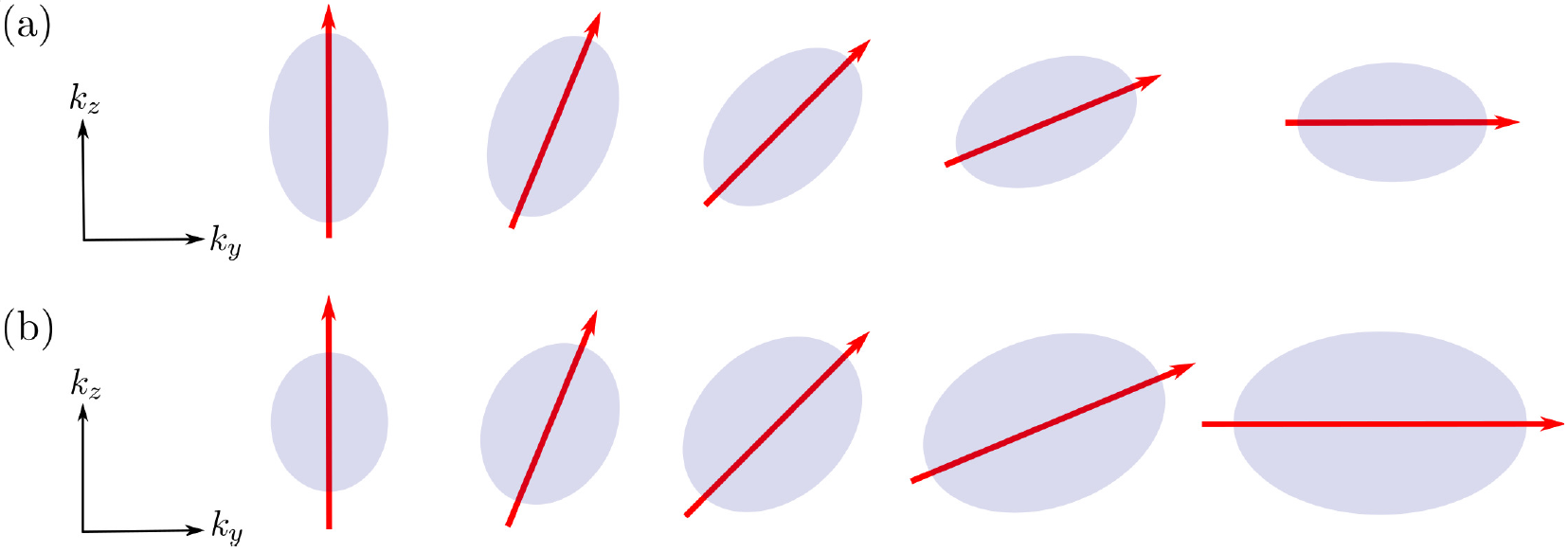
In collaboration with our theory colleagues from Serbia (Antun Balaž, Vladimir Veljic), Germany (Axel Pelster) and Brazil (Aristeu R. P. Lima), we have investigated the ground-state properties of dipolar Fermi gases, extending the current understanding to the case of arbitrary dipole orientation and trapping geometries.
We have observed an excellent agreement between our model and our measurements performed on Erbium quantum degenerate gases. This demonstrates the predictive power of our general theory, which can be equally applied to ultracold polar molecules as well as highly-magnetic atoms. Our theory additionally predicts a novel phenomenon, namely the softening of the Fermi surface, which increases its deformation just by dipole rotation. Our work paves the way for future investigations on dynamical properties, anisotropic Fermi liquid theory and anisotropic superfluid pairing.
Caption: Illustration of the angular dependence of the Fermi surface deformation in momentum space for dipoles in an anisotropic trap elongated along the y axis. For weak dipolar strenght, the Fermi surface just rotates like a rigid object (up). However, for strong dipolar strenght, the Fermi surface gets more elongated when the dipoles points along y (while it also stretches in all directions; down).
